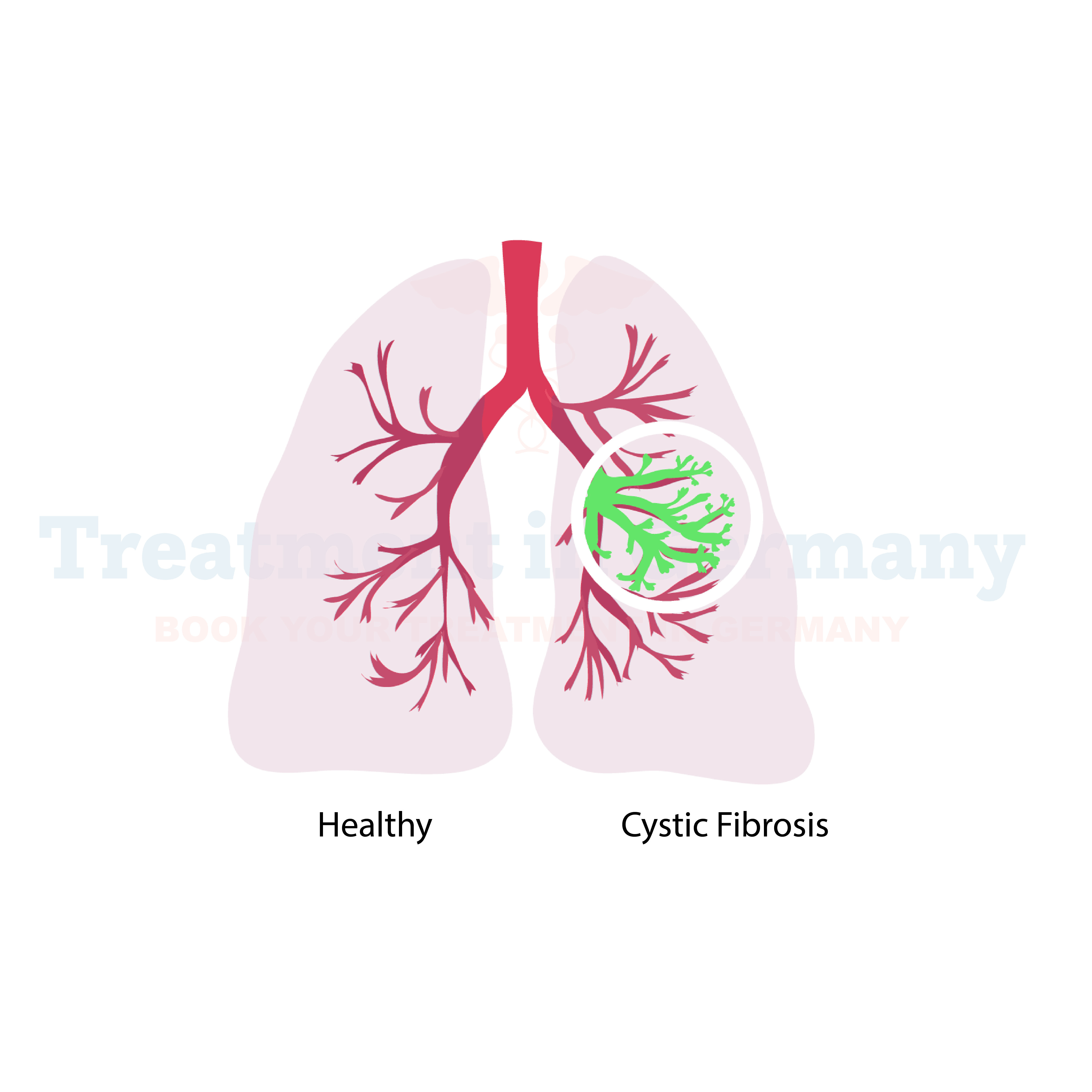What is Cystic Fibrosis:
Cystic Fibrosis (CF) is a genetic disorder primarily affecting the lungs and digestive system. It is caused by a defective gene that results in the production of thick, sticky mucus. This mucus can clog the airways in the lungs, leading to breathing difficulties and frequent lung infections.
Additionally, CF can impair the function of the pancreas, affecting the body's ability to digest food and absorb essential nutrients.
Side effects of Cystic Fibrosis:
The symptoms of Cystic Fibrosis can vary widely from person to person, but common side effects may include:
- Persistent coughing with thick mucus
- Shortness of breath
- Frequent lung infections, such as pneumonia or bronchitis
- Poor growth and weight gain despite a good appetite
- Digestive problems, including greasy stools, abdominal pain, and difficulty gaining weight
- Salty-tasting skin
- Chronic sinus infections
How is Cystic Fibrosis diagnosed?:
Diagnosing Cystic Fibrosis typically involves a combination of medical history evaluation, physical examination, and specialized tests, including:
- Sweat test: This is the most commonly used test to diagnose CF. It measures the amount of salt in sweat, as people with CF have higher levels of salt.
- Genetic testing: Identifying specific genetic mutations associated with CF can confirm the diagnosis.
- Lung function tests: These tests measure how well the lungs are working and can detect any abnormalities indicative of CF.
- Imaging tests: X-rays or CT scans may be used to assess the condition of the lungs and detect any structural abnormalities.
Potential treatments of Cystic Fibrosis:
While there is currently no cure for Cystic Fibrosis, advancements in treatment have significantly improved the quality of life and life expectancy for patients. Treatment options may include:
- Airway clearance techniques: These techniques, such as chest physiotherapy and the use of mechanical devices, help loosen and clear mucus from the airways, making it easier to breathe.
- Medications: Bronchodilators and antibiotics may be prescribed to help open the airways and prevent or treat lung infections.
- Enzyme replacement therapy: For individuals with pancreatic insufficiency, enzyme supplements can aid in digestion and nutrient absorption.
- CFTR modulator therapy: These are a newer class of medications that target the underlying cause of CF by helping the defective CFTR protein function more effectively. They are tailored to specific genetic mutations and have shown promising results in improving lung function and reducing exacerbations.
👉 Contact us for
further information and receive a complimentary consultation.


.webp)
 (1).webp)

.webp)
 (1).webp)


.webp)
 (1).webp)

.webp)
 (1).webp)
